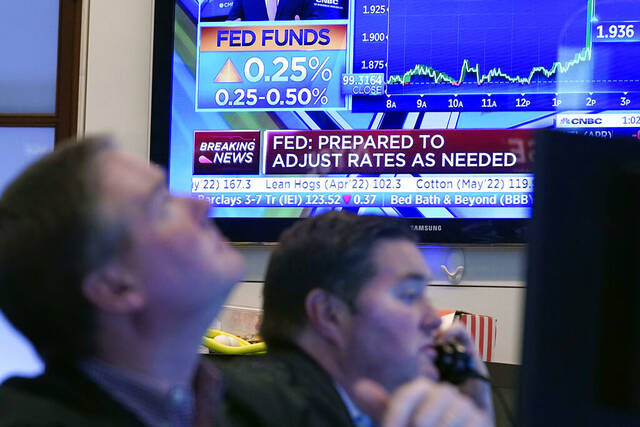https://triblive.com/opinion/editorial-is-inflation-as-bad-as-it-seems/
Editorial: Is inflation as bad as it seems?

Inflation is on the rise.
That’s not news to anyone who has been to the grocery store lately. Or bought a house or car. Or signed a lease. If you’ve spent money on literally anything in the past two years, you have seen the cost steadily rise.
A U.S. Commerce Department report Friday showed that in March prices were up 6.6% year over year. Remove food from the equation and it’s 5.2%.
The good news is that last number is down a fraction from February, when it was 5.3%. It’s the first time since February 2021 that it has come down at all. The report also showed that consumer spending ticked up by 1.1% in March.
The first thought is, well, obviously spending rose. If all of the things you need to buy to get to work and do your job and feed your kids cost more today than a month ago, your spending will be up.
What some people are seeing as positive is that people aren’t reacting by pulling back hard with austerity measures. Even with inflation adjustments, spending was up 0.02%. That could be because salaries, also adjusted for inflation, were up 1.4% in the first quarter of 2022.
That means while inflation is at a 40-year-high, paychecks are growing in a way they haven’t in 20 years.
Increasing the cost of labor will obviously have an impact on the cost of goods and services, so there is a logic to that. But there are other aspects that can’t be attributed to that.
For many experts, the amount of money that government has poured into relief since the onset of the coronavirus pandemic in 2020 is part of it. Historically, there’s a precedent for that. The massive inflation in Germany after World War I and before World War II was because of devaluation of currency and debt. The skyrocketing of costs in Venezuela has been a problem for decades but reached epic proportions since 2015 because of deficit spending.
The U.S. has definitely done the same. The national debt stands at $30.4 trillion and is growing by the second, with a $2.2 trillion budget deficit. However, does that mean Pittsburgh needs to brace to become the next Caracas in 2016 or Berlin in 1923?
No. Because where Germany and Venezuela were facing specific hyperinflation due to their own circumstances, the U.S. is dealing with inflation that extends outside its borders. Europe is experiencing record inflation at 7.5% — higher than America’s. In Russia, it’s projected to hit 23% amid the Ukraine war.
The U.S. remains the largest single economy in the world and represents almost 25% of the planet’s gross domestic product, according to Nasdaq.
Is curbing inflation important? Absolutely. The government has to take steps to temper deficit spending. That doesn’t necessarily mean closing the public purse — just setting a budget and not running up the credit card. It is just as critical for the people to do their part by not panicking and by recognizing that inflation is cyclical and reactive.
The best way to survive inflation and economic upheaval can be seen historically. It’s by being smart, keeping anxiety to a minimum and not fanning political flames.
Copyright ©2026— Trib Total Media, LLC (TribLIVE.com)
